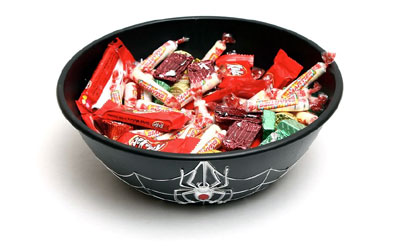7 Mistakes Youre Probably Making When You Weigh Yourself

Weighing yourself seems like a simple task. You just step on the scale, read the number on the screen, and you're done, right? Wrong. Weighing yourself is a lot more complicated than you probably think.
Many people make mistakes, which not only show incorrect weight readings but also negatively affect their mood and trigger bad eating habits—so it's important to learn how to weigh yourself properly.
Here are seven mistakes you should avoid when weighing yourself:
1. Weighing yourself at night
The foods and beverages we eat during the day affect our weight, so chances are the readings on the scale will be higher if you weigh yourself in the afternoon or evening.
The best time to step on the scale is in the morning before eating anything or wearing clothes. One study found that women can weigh up to 1.75 pounds more due to the clothes they're wearing, while men can weigh an extra 2.5 pounds.
2. Weighing yourself too frequently
Naturally, weight fluctuates due to water retention. In fact, adding a lot of salt to food or eating high-sodium foods can make you weigh up to 4 pounds more. On the flip side, reducing carb intake can cause temporary weight loss. So it's not wise to weigh yourself several times a day or even every day. Step on the scale once or twice a week.
3. Letting the reading on the scale affect your mood
It's OK to feel bad if the scale is stuck on the same number or has gone up by a few pounds. But don't let that one thing affect your mood and eating habits.
Instead of being frustrated, examine your diet and workout regimen to determine why it's not working. Making small adjustments like drinking more water can actually enhance weight loss.
4. Focusing only on the scale
The scale is just one way to track progress—you should also be tracking your body fat percentage. This will show you whether you're losing fat or if your body composition is changing. Measure your body fat percentage once or twice a month.
Tracking blood pressure and cholesterol levels can also keep you motivated even when you aren't seeing changes on the scale.
5. Weighing yourself on Mondays
If you're like most people, you overindulge on the weekend. This means that you'll weigh more on Monday, and this might discourage you from staying on track on weekdays.
Friday is the best day to weigh yourself since it's generally easier to maintain healthy eating habits during the week. So you'll probably weigh less on Friday, and this will encourage you not to overindulge on the weekend.
6. Weighing yourself after exercise
You'll weigh less after exercise due to the fluid lost through sweat. Weighing yourself before exercise will give you more accurate results.
Feel free to weigh yourself before and after exercise to determine the amount of fluid lost through exercise. You need to drink a liter of water to replenish 2 pounds lost through exercise.
7. Using different scales
All scales don't give the same results. So tracking your weight with one scale, even if it doesn't reflect your actual weight, will at least accurately track your progress.
That said, you should use a quality scale. Buy a digital scale instead of using spring scales, because they have a higher margin of error.
-
A Quick Overview Of The Diet To Go Plan
Every diet you ever come across will tell you to eat small regular mea
-
4 Simple Changes That Will Help You Cut Back On Sugar
-
Resolve Enthusiasm Power
Think for a moment about the highest mountain you ever climbed, the de
-
Buy Weight Loss Diet Pills - Phentramin D
Obesity being the root cause of several diseases including heart dis
-
Mediterranean Baby Spinach Salad
Enjoy this fresh salad made with baby spinach for a complete lunch
-
Debunking the Weight Loss Myths
Argue for your limitations and sure enough theyre yours. - Richard
- DON'T MISS
- Pack on the Pounds with Protein
- Best Weight Loss Tips - Weight Loss Exercise Tips
- Why Do People Give Up on Losing Weight?
- To Lose Weight You First Must Lose Your MIND (Pt 1)
- Understanding blood pressure readings key to overall well-being
- Your Reasons to Lose Weight Will Increase Your Motivation
- Obstructive sleep apnea patients with CPAP intolerance may benefit from hypoglossal nerve stimulation (HGNS)
- How to Lose Dangerous Belly Fat the Right Way
- Know About the Extreme Weight Loss Methods
- Have Extra Weight? We Can Help




